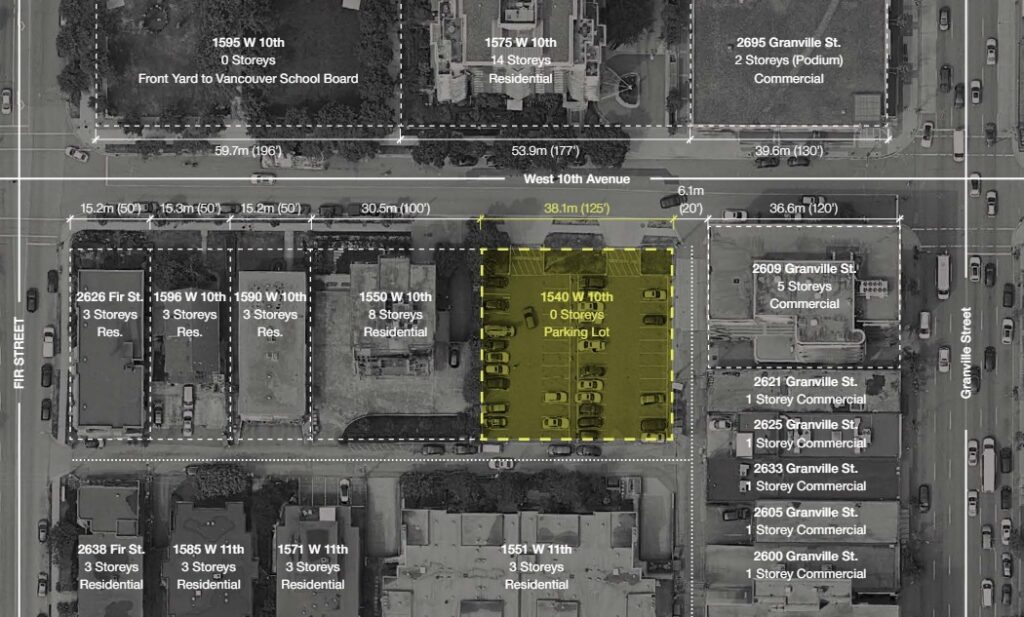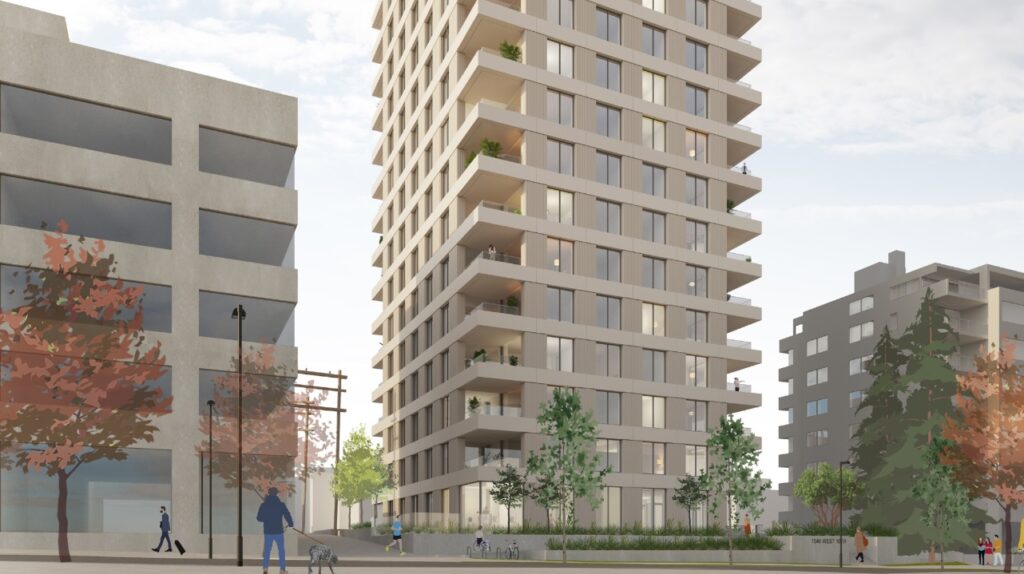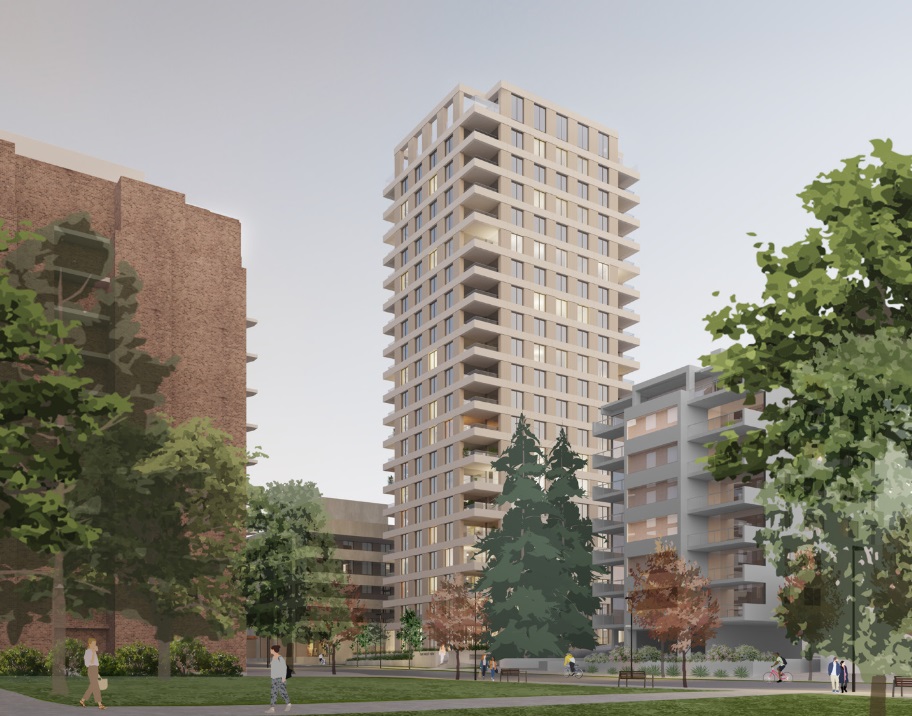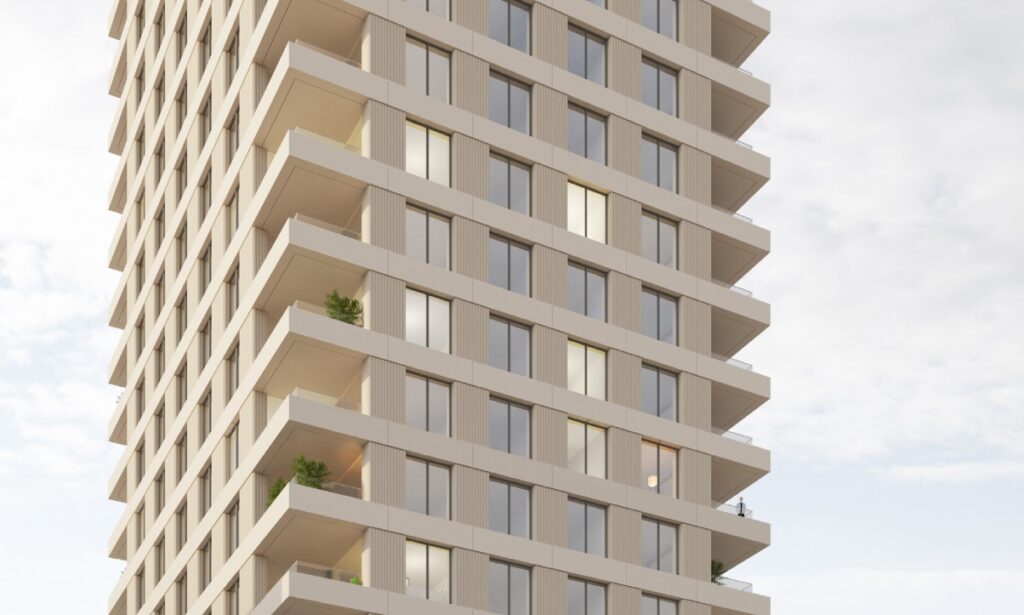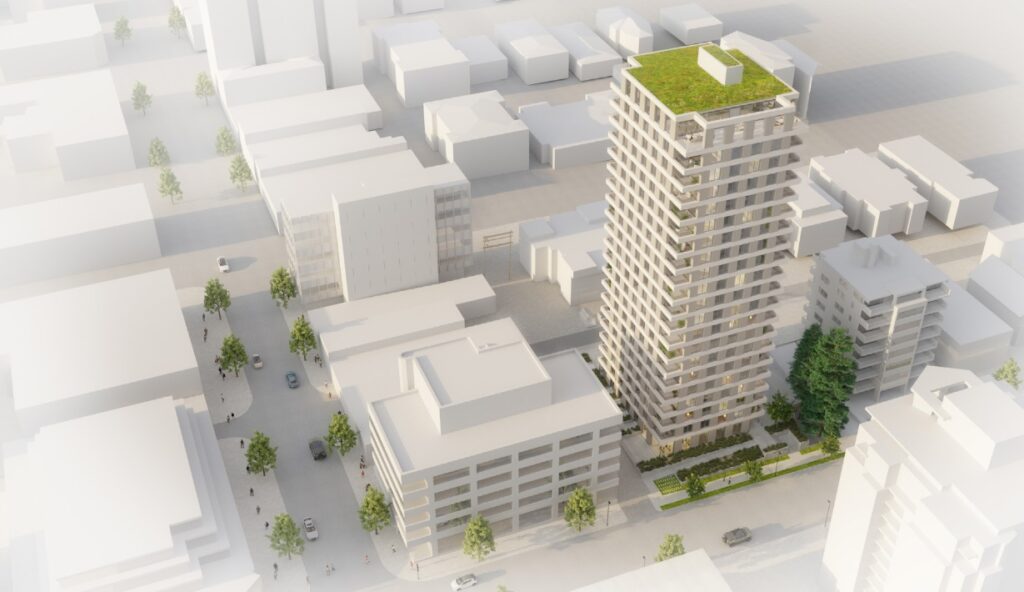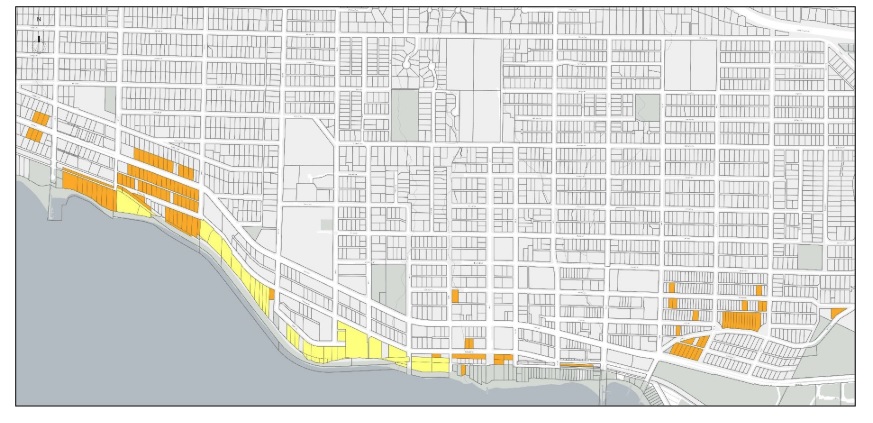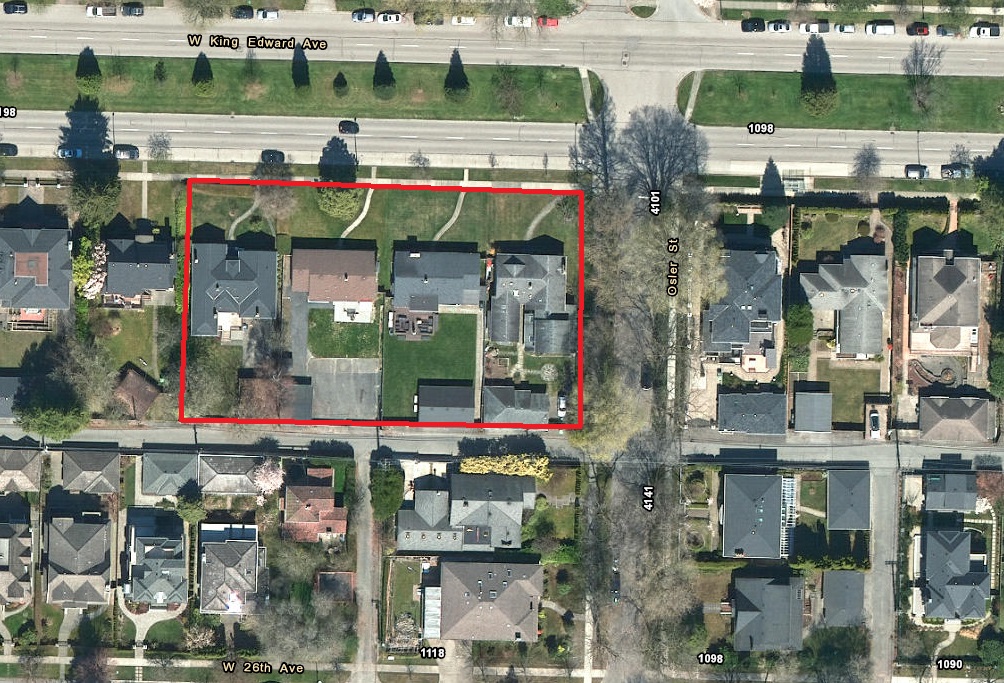Reliance Properties has submitted a rezoning application for the sufrace parking lot at 1540 West 10th Avenue, located just West of Granville Street.
The lot has 125 feet of frontage and was acquired as part of the sale of the adjacent office building at 2609 Granville Street in 2017 in a deal valued at $59,000,000.
The current proposal under the Broadway Plan is to allow for the development of a 21-storey rental building that includes:
- 112 rental units;
- 20% below market units;
- a total density of 6.50 FSR;
- A building height of 226 ft.;
- 84 parking stalls including 33 replacement stalls for the neighbouring office building.
The architect for the project is Office of McFarlane Biggar.


